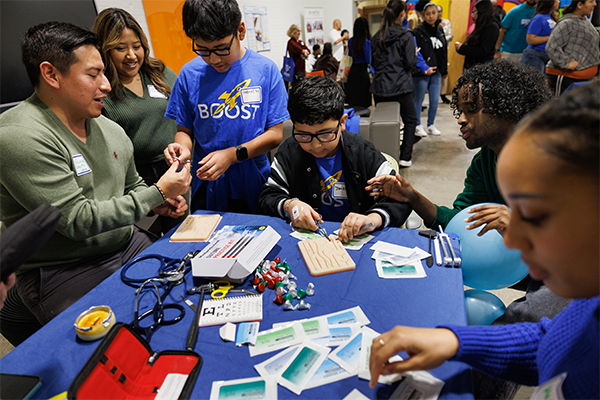
Duke University School of Medicine’s BOOST Program recently celebrated 20 years of inspiring young people to pursue careers in science, technology, engineering, and medicine (STEM). On December 10, BOOST leaders and members of the Durham community came together to recognize the program’s 20-year anniversary and honor the legacy of BOOST’s founder and pioneering Duke physician, the late Brenda Armstrong, MD.
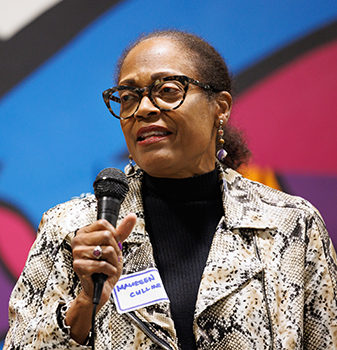
During the event, many of the program’s alumni and community members shared their memories of Armstrong as a coach, mentor, and leader. Alumni of the program and even current scholars who didn’t have the chance to meet Armstrong shared how she inspired their love of medicine and science.
“She loved teaching, and she loved learning,” said Maureen Cullins, director of the School of Medicine’s Multicultural Resource Center. “Brenda’s legacy is all of you here, and all of the people who have come after her.”
The evening also included booths featuring partner organizations and student art. Attendees had the opportunity to participate in hands-on STEM activities led by groups including the Duke Latino Medical Student Association and the Duke Student National Medical Association. Leaders from the Durham Striders, where Armstrong coached student athletes, were also in attendance.
BOOST — Building Opportunities and Overtures in Science and Technology — serves Durham Public Schools students in fifth through eighth grades. The program encourages students to pursue careers in medicine and related fields through stimulating, hands-on classroom activities and mentorship. To date, BOOST has provided over 2,000 hours of STEM engagement for Durham Public Schools scholars.
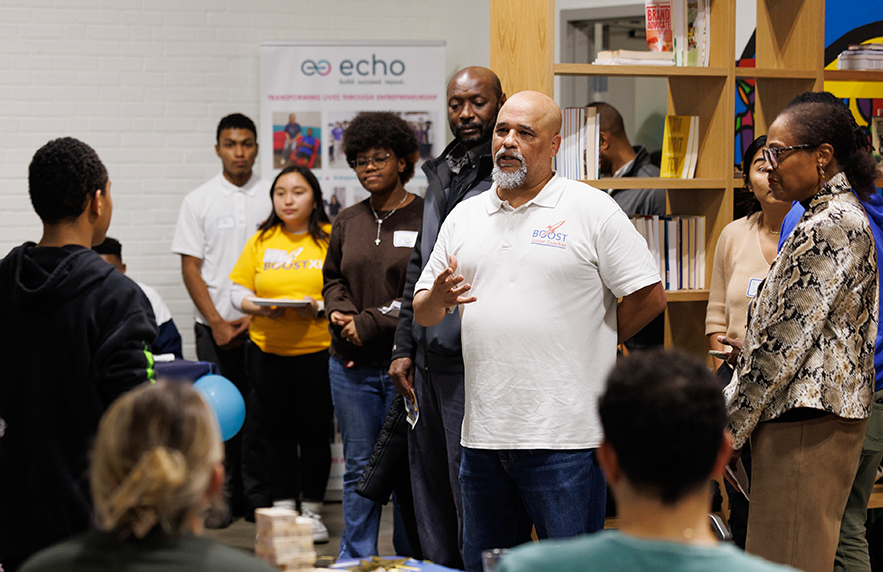
“Twenty years ago, Dr. Brenda Armstrong started this program because she had a vision for our young folks,” said Douglass Coleman, program director for BOOST. “Middle school is a time when our young people start deciding that science is not for them. This program convinces them that there is space for them and that we're going to make space and opportunity for them. Dr. Armstrong would be proud.”
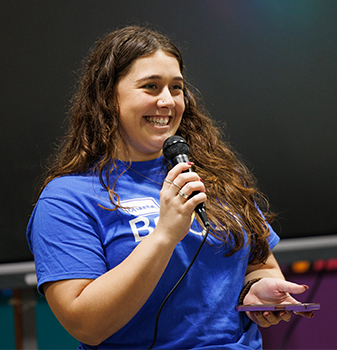
As a first-generation college student, Brianna Garrett credits the BOOST Program for putting her on the path to pursuing higher education. She started in the program as a fifth grader in 2010. She went on to earn a psychology and neuroscience degree from Elon University and recently graduated from UNC Gillings School of Public Health with a master’s degree. She remains involved with BOOST today as a paid mentor.
“When I first started BOOST as a middle school student, I was really shy, but I felt seen and safe being at BOOST on the weekends,” Garrett said.
“There were a lot of people around me who were always talking about pursuing our dreams and going to college, but no one was really teaching us how we could get there,” she said. “As a middle school student, it was a big deal that there were a lot of people around me [at BOOST] telling me not only should you do this, but this is how you're going to do it, and we're always going to be here behind you, pushing you forward.”
Michaelle Briones, a senior at Middle College High School who first joined BOOST as a sixth grader and now serves as a near-peer mentor, also says the program has given her the confidence to pursue higher education.
“Over the years, I’ve realized that BOOST is far more than just a STEM program — it is a supportive community and a family that stands by you through every stage of life,” she said. “Through BOOST, I’ve built lifelong friendships, challenged myself to step outside my comfort zone, and embraced new opportunities.”
A professor in the Department of Pediatrics, Armstrong was the second black woman in the United States to become a board-certified pediatric cardiologist. Armstrong served the School of Medicine for more than 20 years as associate dean for admissions. She is credited with recruiting the most diverse classes in the school’s history.
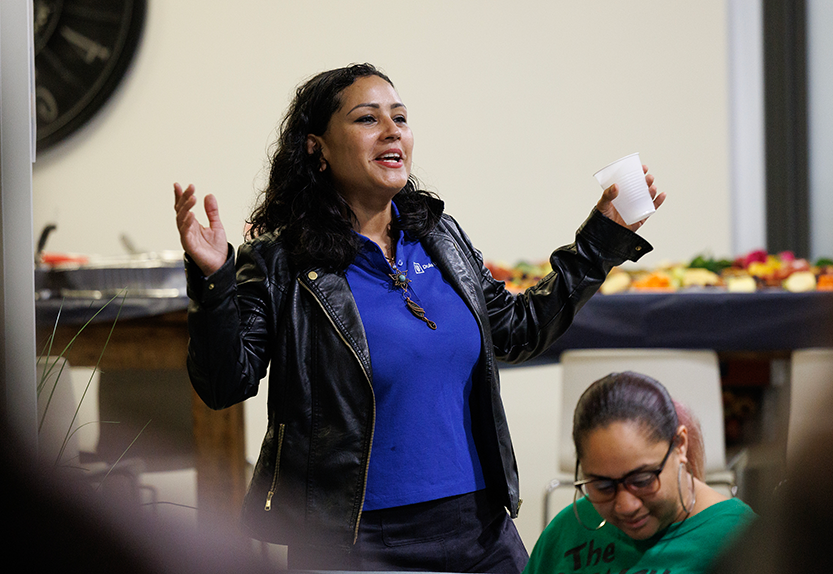
Photos by Eamon Queeney, Assistant Director, Multimedia & Creative